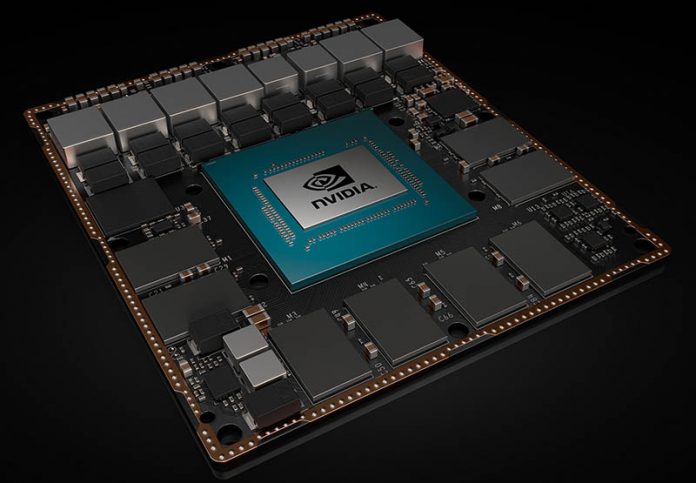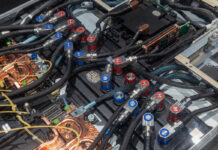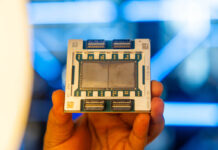STH was at the NVIDIA Computex 2018 press conference today for the launch of the next-generation of robotics platform: the NVIDIA Isaac Xavier. The NVIDIA Isaac Xavier computing platform is based on the Jetson Xavier platform with over 9 billion transistors and delivers over 30 TOPS (trillion operations per second.) With only a 30W power envelope, the setup is designed to bring more compact compute performance to robots to enable next-generation form factors. The new NVIDIA Isaac Xavier platform will be available in early August 2018 at just under $1300. That is a significant step up from the Jetson TX-2’s pricing.
NVIDIA Isaac Xavier
The NVIDIA Isaac Xavier platform’s hardware is based on the Jetson Xavier. NVIDIA Jetson Xavier has six kinds of processors:
- An 8 core ARMv8 64-bit CPU
- Volta Tensor Core GPU
- Dual NVDLA deep learning accelerators
- Image Processor
- Vision Processor
- Video Processor
You can see more specs below. One of the more interesting specs is that the Jetson Xavier supports PCIe 4.0 and is one of the first major architectures to do so. Even the Cavium ThunderX2, the current high-end ARM CPU core that was just announced, supports only PCIe 3.0.
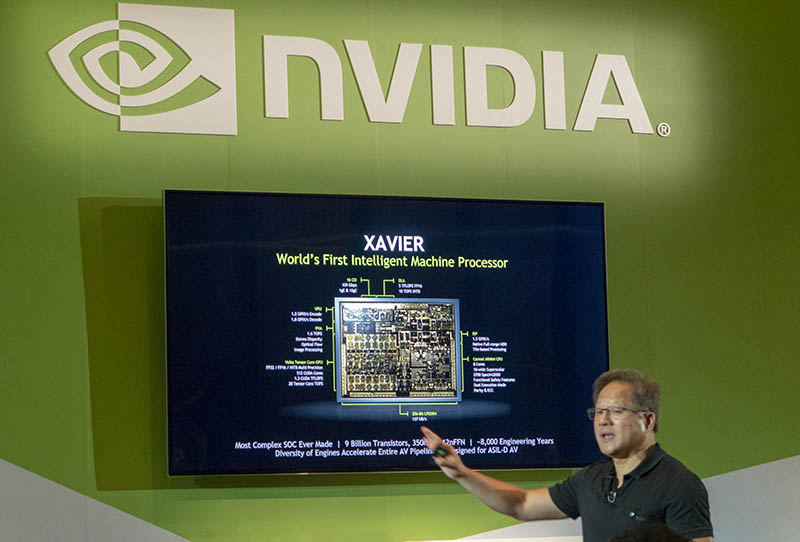
The high-end hardware is designed to enable robots to handle multiple video feeds, and process sensor data to enable intelligent robots able to navigate the world and interact with humans. To that end, NVIDIA is enabling developers with a set of software on the Isaac development platform.
NVIDIA Isaac Robotics Software
NVIDIA provides a toolbox for the simulation, training, verification and deployment of Jetson Xavier. This robotics software consists of:
- Isaac SDK – a collection of APIs and tools to develop robotics algorithm software and runtime framework with fully accelerated libraries.
- Isaac IMX – Isaac Intelligent Machine Acceleration applications, a collection of NVIDIA-developed robotics algorithm software.
- Isaac Sim – a highly realistic virtual simulation environment for developers to train autonomous machines and perform hardware-in-the-loop testing with Jetson Xavier.
The goal is to provide a platform that has the tools to enable next-generation robotics using a small platform.
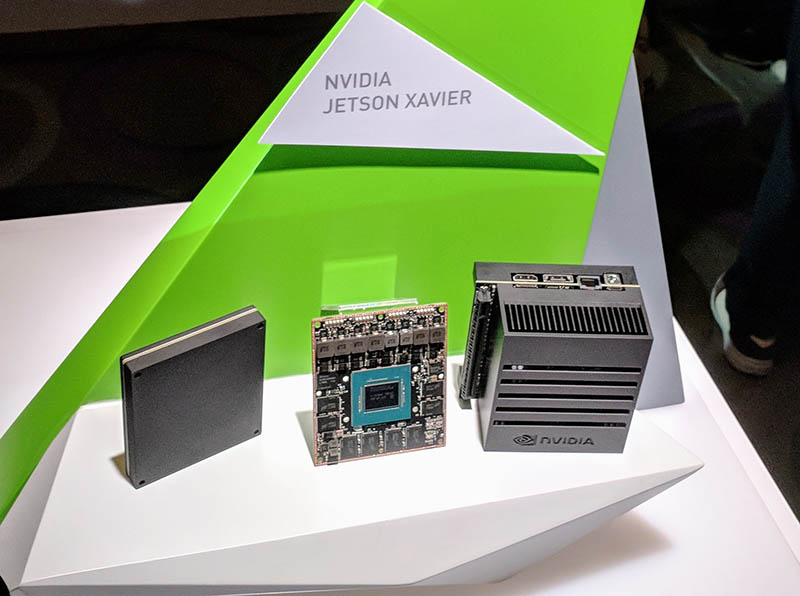
NVIDIA Jetson Xavier Key Specs
Here are the key specs of the NVIDIA Jetson Xavier that powers the NVIDIA Isaac Xavier:
| Jetson Xavier Key Specs | |
|---|---|
| GPU | 512-core Volta GPU with Tensor Cores |
| DL Accelerator | (2x) NVDLA Engines |
| CPU | 8-core ARMv8.2 64-bit CPU, 8MB L2 + 4MB L3 |
| Memory | 16GB 256-bit LPDDR4x | 137 GB/s |
| Storage | 32GB eMMC 5.1 |
| Vision Accelerator | 7-way VLIW Processor |
| Video Encode | (2x) 4Kp60 | HEVC |
| Video Decode | (2x) 4Kp60 | 12-bit support |
| Mechanical | 100mm x 87mm with 16mm Z-height (699-pin board-to-board connector) |
| Display | (3x) eDP/DP/HDMI at 4Kp60 | HDMI 2.0, DP HBR3 |
| Camera Inputs | 16 lanes CSI-2, 40 Gbps in D-PHY V1.2 or 109 GBps in CPHY v1.1 8 lanes SLVS-EC Up to 16 simultaneous cameras |
| PCIe | 5x 16GT/s gen4 controllers | 1×8, 1×4, 1×2, 2×1
|
| USB | (3x) USB 3.1 (10GT/s) (4x) USB 2.0 Ports |
| Ethernet | (1x) Gigabit Ethernet-AVB over RGMII |
| Other I/Os | UFS, I2S, I2C, SPI, CAN, GPIO, UART, SD |
As a note, Jensen Huang, the CEO of NVIDIA, handed us a snack before the event. Thanks! This was one of the best PR stunts since it was just after a lunch and many in the crowd had not eaten.

